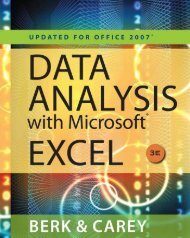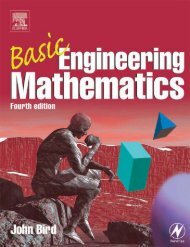How-to-Write-a-Better-Thesis
Create successful ePaper yourself
Turn your PDF publications into a flip-book with our unique Google optimized e-Paper software.
36 3 Mechanics of Writing<br />
thesis. Your university probably has some guidelines on how <strong>to</strong> acknowledge this<br />
work; you may, for example, be required <strong>to</strong> include in your thesis a list of such<br />
papers and <strong>to</strong> identify the pages or chapters where the papers are incorporated. The<br />
main difficulty that arises is when the papers were co-authored. If you wrote papers<br />
with your supervisor, then it is generally felt <strong>to</strong> be legitimate <strong>to</strong> use them if the<br />
presentation was principally your work—a paper written by your supervisor around<br />
your results should not be used (though you can use the results). If you wrote papers<br />
with a fellow research student, it may be that only one of you can report it; check<br />
your institutional guidelines. If you do strongly feel the need <strong>to</strong> use material from<br />
another work, you have two choices. You can explicitly quote it—but not excessively,<br />
because the bulk of the text should be your own—or you can paraphrase it.<br />
For the latter, the simple exercise of reading the work you wish <strong>to</strong> paraphrase, making<br />
brief notes, then writing from these notes (preferably some days later) can avoid<br />
any risk of plagiarism. In such cases you should still make clear that your writing<br />
is based on the work of someone else, and give abundant citations; use of someone<br />
else’s ideas or thoughts without due credit is another form of plagiarism.<br />
In a related question, how much should you ask—or even pay for—someone <strong>to</strong><br />
edit your own writing? The short answer is ‘nothing’: ideally, each word in your<br />
thesis should be your own, and yours alone. <strong>How</strong>ever, it is accepted practice at<br />
university learning support units <strong>to</strong> provide assistance during a consultation session<br />
with you for a single chapter. In such sessions, they will ask you <strong>to</strong> reflect on<br />
what you have written, ask you if you can self-identify tangled prose and faulty<br />
grammar, and suggest <strong>to</strong> you some strategies and materials <strong>to</strong> improve. University<br />
learning consultants are asked <strong>to</strong> not edit your work, rewrite material, or fix up poor<br />
structure.<br />
Summary of Chapter 3: Mechanics of Writing<br />
Learn how your word processor supports authoring of long documents:<br />
• Writing and word-processing habits learnt on short documents such as essays are<br />
not effective for thesis writing.<br />
• Use the right word processor for your academic community.<br />
• Use referencing <strong>to</strong>ols for maintenance of chapter numbers, citations, and so on.<br />
Be aware of the distinction between presentation and content. Develop a style<br />
template based on the most common style of your field.<br />
• Use <strong>to</strong>ols <strong>to</strong> check spelling and grammar, but check manually as well.<br />
• Use appropriate drawing and graphing <strong>to</strong>ols, which may not be the ones you are<br />
familiar with from other tasks. Make sure the results look professional.<br />
Document management:<br />
• Develop a systematic method for determining what constitutes the ‘master’ copy<br />
of your document.<br />
• Back-up your work frequently and in a variety of ways.


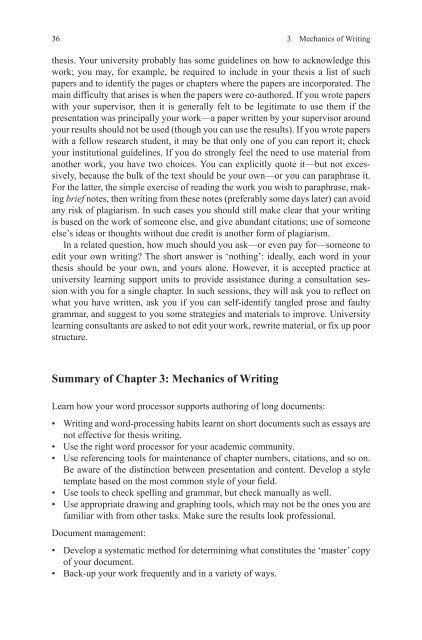

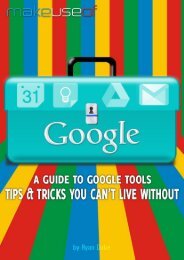
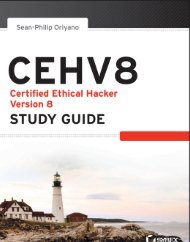
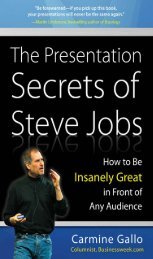
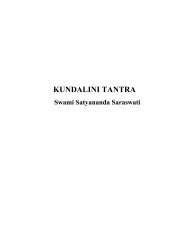
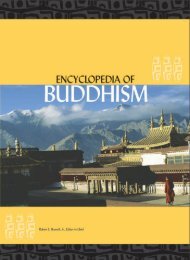
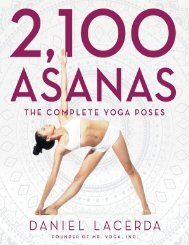
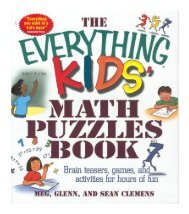



![[Lonely Planet] Sri Lanka](https://img.yumpu.com/59845622/1/169x260/lonely-planet-sri-lanka.jpg?quality=85)

